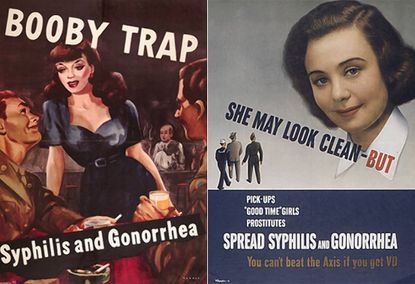Sexually transmitted diseases simply refer to a family of infections that can be transmitted through body fluids such as blood, semen, vaginal fluids and so on during sexual intercourse.
These infections are caused by organisms such as bacteria, parasites and viruses.
Although STDs are not a new topic in our society, they are still not well understood by a large part of the population.
It is important to reiterate that Human immunodeficiency virus (HIV) isn’t the only sexually transmitted disease as is believed by some groups of people. Although HIV is deadly if not quickly diagnosed and managed, there are a wide variety of other sexually transmitted diseases that can also significantly impact one’s health.
Some sexually transmitted diseases include:
Genital Herpes
Chlamydia
Gonorrhea
Human Immunodeficiency Virus (HIV)
Syphilis
Hepatitis B and C
Human papilloma virus infection
As the name implies, these diseases can be gotten through sexual intercourse.
Signs and symptoms of sexually transmitted disease
Sexually transmitted diseases are sometimes asymptomatic and can be gotten from a seemingly healthy person. The Asymptomatic nature of STDs makes it possible for an infection to go unnoticed until complications surface or a sexual partner is diagnosed.
Although sexually transmitted diseases can be asymptomatic, there are certain signs and symptoms that might point to the presence of an STD. These symptoms vary depending on the type of infection but common symptoms include:
Ulcers on or around the genitals, rectum and oral cavity
Vaginal bleeding
Painful sexual intercourse
Lower Abdominal pain
Fever
Painful Urination / Burning sensation when urinating
Foul smelling vaginal discharge
Causes of Sexually transmitted disease
Sexually Transmitted Diseases are transmitted from one person to another during unprotected sex.
Risk Factors
Any sexually active person is already at the risk of contracting sexually transmitted diseases. However; certain factors predispose people to getting sexually transmitted diseases and these factors include:
Having unprotected sexual intercourse
Multiple sexual Partners
Existence of an untreated sexually transmitted disease.
Certain medications
Rape, etc.
Prevention of sexually transmitted disease
Sexually transmitted diseases can be prevented by taking measures like:
Getting tested: if you are sexually active, it is important that you and your partner go for regular checkups to ensure that you are not infected.
Maintain one faithful sexual partner: as earlier discussed, having multiple sexual partners predisposes you to contacting sexually transmitted diseases, so it is advisable to stick to one faithful partner.
Use protection: Condoms offer a high degree of protection against sexually transmitted diseases as long as they are used properly.
Abstinence: Total abstinence from sex is the most effective way of preventing infection.
Complications of Sexually transmitted disease
As Sexually transmitted disease can be asymptomatic, undiagnosed and untreated STDs can lead to complications such as:
Chronic pelvic pain
Infertility
Heart disease
Cancers
Arthritis
Pelvic inflammatory disease
Chronic liver disease
Treatment
After diagnosis, a treatment plan will be initiated based on your diagnosis.

Olajumoke Adeyemo is a Pharmacy student of the University of Ibadan. She is a passionate copy & content writer, nature lover and a public health enthusiast. She is a Christian.
Her hobbies are reading, music, writing and traveling.

